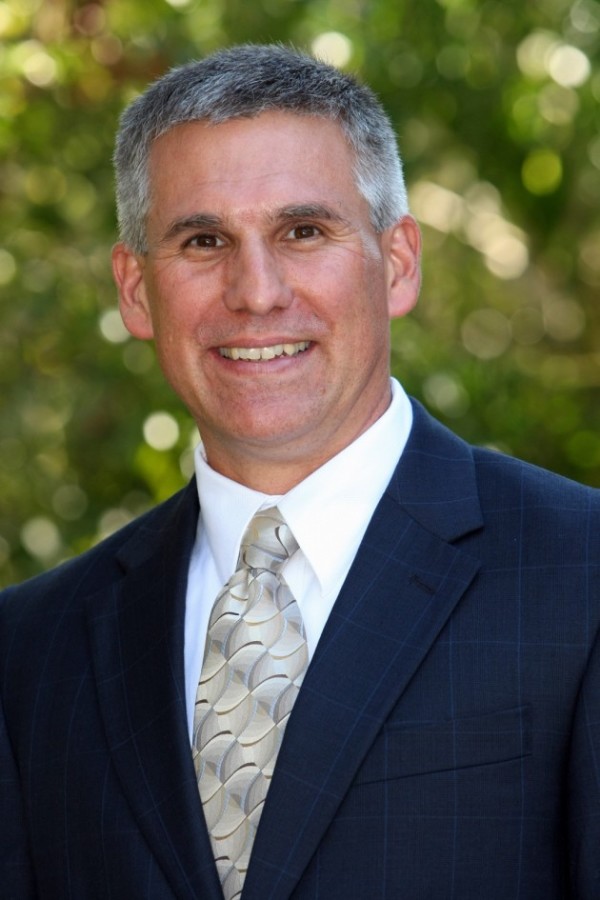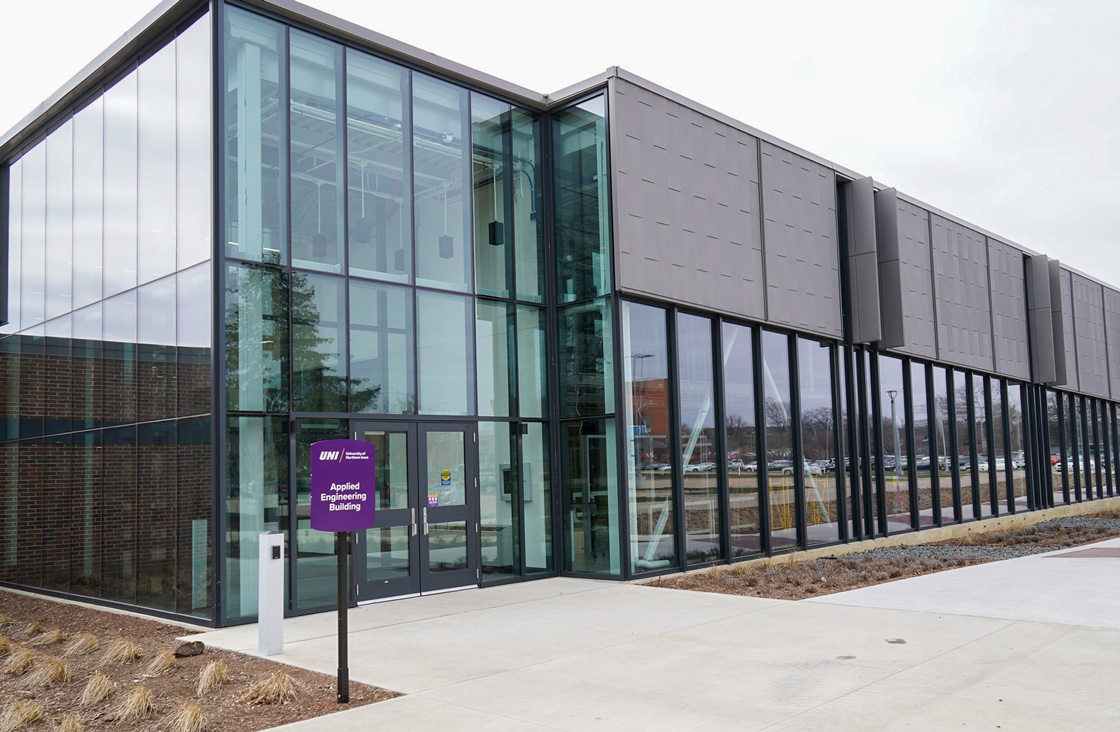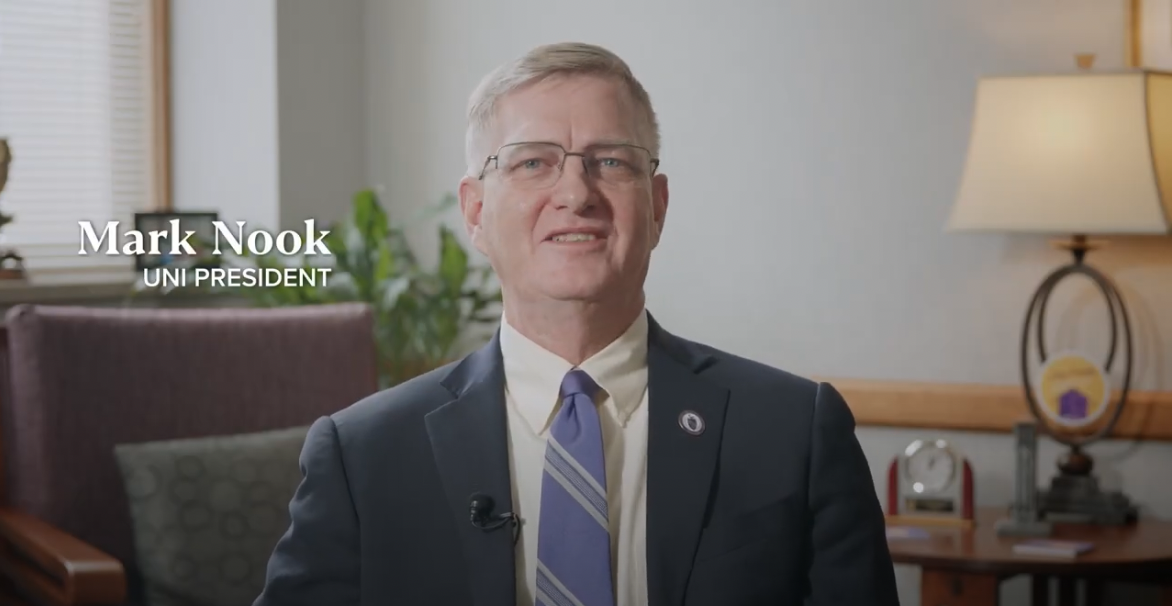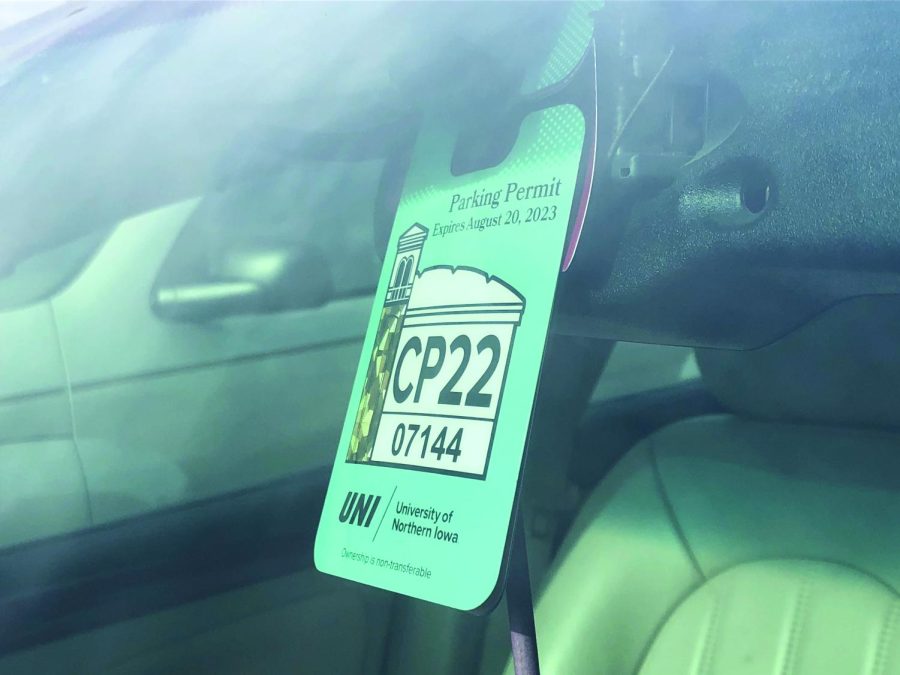The search for UNI’s replacement provost is entering its final stages; the final three candidate presentations are scheduled for the end of Frebruary and are open to the public.
“I think [President Ruud’s] hope is to identify someone by spring break, and that seems to be a reasonable expectation,” said John Johnson, history professor, executive vice president of academic affairs and chair of the Provost Search Committee.
The Provost Search Committee has been in pursuit of a replacement since the fall of 2014 after then-provost Gloria Gibson officially stepped down. President Ruud promptly named Dr. Michael J. Licari interim provost — a position he has occupied for nearly seven months since Gibson’s resignation.
The Provost Search Committee consists of 19 members, including faculty, staff, NISG President Kevin Gartman and a member of the Board of Regents.
“The committee works very well together — they are can-do people and they want to get the job done right,” Johnson said. “We’ve been very busy since September. This is the critical, visible stage, but we have been doing a lot quietly and confidentially.”
At this point in the search, the committee has shortlisted five candidates, two of whom have completed their formal interviews and presentations. These two candidates are Michael J. Licari and A. James Wohlpart. All candidate interviews and presentations should be completed by the middle of February.
For Johnson, whichever candidate the President chooses will face many important issues.
“The provost sets the tone for our institution. He or she is the person that we look to for leadership, and the person that the President looks to for leadership, on the academic side of the University,” Johnson said.
Anyone can look up the candidates’ resumes, presentations, and the presentation dates for the remaining candidates on UNI’s website at http://www.vpaf.uni.edu/provostsearch/index.shtml.
According to Licari’s resume, his scholarly and teaching experience lies in the fields of political science and public policy, with the majority of his administrative experience coming in-house from UNI, including his current position as interim provost.
Wohlpart is currently serving as dean of undergraduate studies at Florida Gulf Coast University. His scholarly and teaching experience rests in English and philosophy.
The pressing question addressed in the open forum presentations was how the administration should differentiate UNI’s academic/curricular mission from those of other universities. The University of Iowa and Iowa State University have more research-based missions while Iowa’s community colleges have trade-based missions. As Iowa’s sole comprehensive university, UNI focuses on both research and teaching to prepare students for jobs.
“The worst-case scenario for a University is to be relatively expensive and completely undifferentiated,” Licari said in his presentation, citing a recent report by Bain & Company.
Licari also focused on prioritizing undergraduate education, embracing the unique roles of our faculty (professors as teacher-scholars, as opposed to researchers) and focusing our efforts to improve communities at the local and state level. Licari concluded by highlighting the importance of providing increased access to education, namely to non-traditional students and students who may come from a lower socioeconomic status.
Wohlpart’s presentation outlined the importance of a university’s vision, mission and strategic plan. He acknowledged that a comprehensive institution needs to have and does have a wide focal scope. However, UNI may need to narrow the focus to provide integrity.
This does not mean gutting the Liberal Arts Core and reinventing UNI as a trade school.
“I want to talk about a very pressing issue in higher education, and that’s what I call, ‘the vocationalization of higher education,’” Wohlpart said.
Wohlpart knows the value of a liberal arts education, but emphasized the significance of applied learning. Wohlpart stated that he would incorporate the importance of applied learning through the means of internships and integrative learning — that is, faculty-student collaborations that apply principles learned in the classroom.
The remaining candidates will present from Feb. 1 through Feb. 10; all presentations will take place at 3:30 p.m. in the Lang Hall auditorium.
Attending the open forum will provide UNI students with a model for excellent public speaking and presentation skills, Johnson said.
“I think going to the open forum would give students an opportunity to see how thoughtful people deal with big issues. The presentations are very formal and well prepared,” Johnson said. “For people who are training for careers that will involve public speaking and presentation, this is a good opportunity to see people who do it well.”









